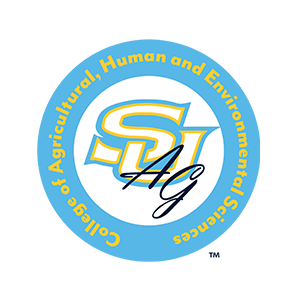Food & Farm Safety Certification Program

Food is any nourishing substance that we eat, drink, or otherwise take into the body to sustain life, provide energy, and promote growth.
Food safety involves the safe handling of food from the time it is grown, packaged, distributed, and prepared to prevent food- borne illnesses. Food safety is the responsibility of those who handle and prepare food commercially for delivery to consumers, and of consumers who prepare and eat food in their homes. Foodborne illness, or food poisoning, may be caused by bacteria that grow on food or by viruses that are spread because food is not cleaned, stored, or handled properly.
Food & Farm Safety Certification
A food-borne illness is a disease passed on to people by food. According to the Centers for Disease Control and Prevention, about 1 in 4 Americans get sick, and about 5,000 die each year from food-borne illnesses. The cost of food- borne illnesses is billions of dollars each year. The Food and Drug Administration Food Safety Modernization Act aims to ensure food safety in the United Sates by focusing more on prevention than response to contamination. Good Agricultural Practices and Good Handling Practices are practices that address environmental, economic and social sustainability for on-farm processes, and result in safe and quality food and non-food agricultural products.
The Food Safety Certification Program provides basic training to farmers and food production managers on how to prevent, minimize, and reduce the risks of food product contamination during farming, purchasing, receiving, storing, preparing, cooking, reheating, and serving. Federal guidelines for the food production facilities are covered for participants to learn the importance of food safety from farm to table. The course introduces biological, chemical, and physical hazards and explains federal guidelines to clean and sanitize food areas, contact surfaces, utensils, and farm facilities. Instructors will also present the route of pathogen contamination in the farm through the 4Ws: water, waste, wild and domestic animals, and worker's health and hygiene. Facility management, cross contamination, and pest control will also be introduced. To prevent food-borne illnesses and ensure safety, food and farm handlers must recognize and practice food and farm safety procedures in production, harvesting, handling, distribution, preparing, cooking and serving.
PROGRAM TOPICS:
Food Safety
- Overview of Food Safety and Standard Practices
- Food Safety and Potential Hazards
- Food Handlers
- Safety in the Food Chain
- Food Safety Management
- Cleaning and Sanitizing
Farm Safety
- Agricultural and Processing Water
- Waste and Soil Management
- Wild and Domestic Animals
- Worker’s Health and Personal Hygiene
- Sanitation during Harvesting, Storage, and Transportation
- Auditing
INSTRUCTORS:
Fatemeh Malekian, Ph.D.
fatemeh_malekian@suagcenter.com
Kasundra Cyrus, Ed.D
kasundra_cyrus@suagcenter.com
Yemane Ghebreiyessus, Ph.D.
yemane_ghebreiyessus@suagcenter.com
Mila Berhane, B.S.
milagro_berhane@suagcenter.com
Eugene Runnels, B.S.
eugene_runnels@suagcenter.com
Renita Woods Marshall, D.V.M.
renita_marshall@suagcenter.com
For more information contact:
Fatemeh Malekian, Ph.D.
181 B.A. Little Drive
Southern University Ag Center
P. O. Box 10010
Baton Rouge, Louisiana 70813
Phone: 225-771-0251
Fax: 225-771-4464
fatemeh_malekian@suagcenter.com
